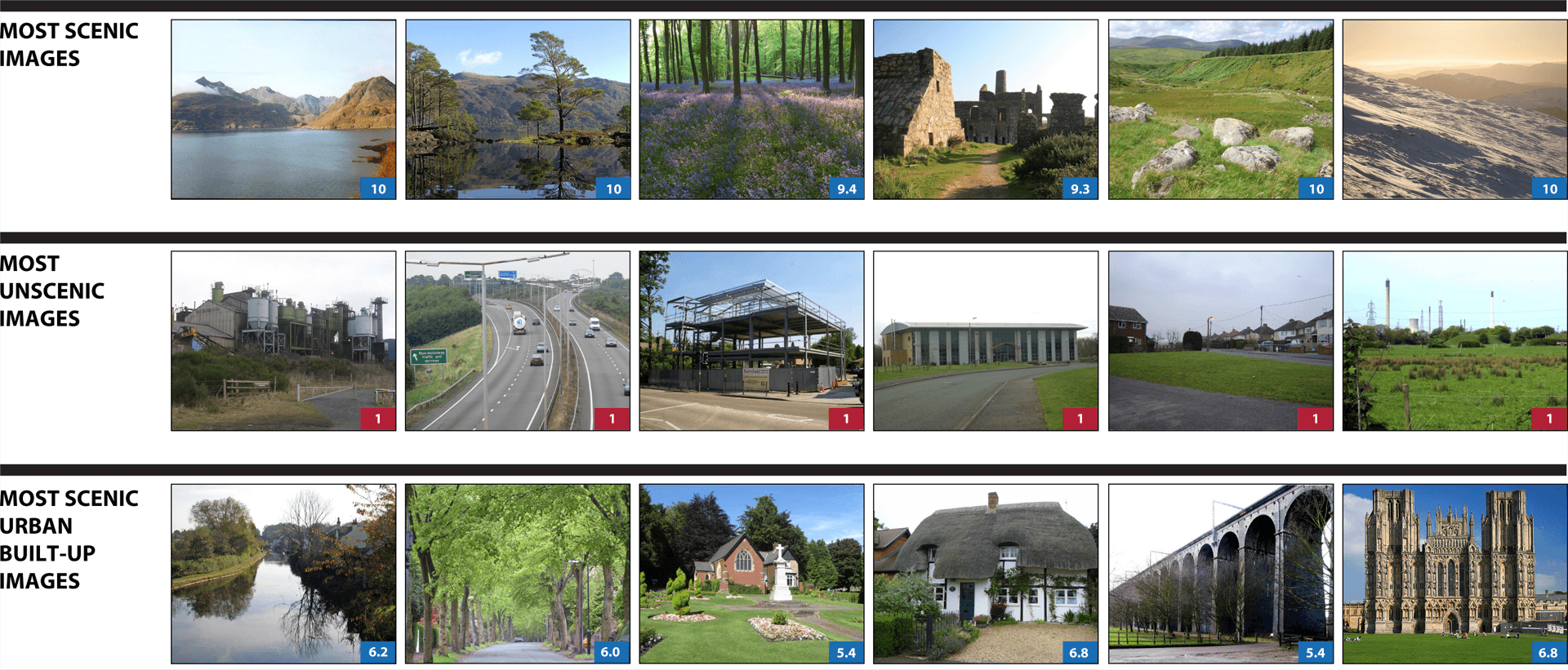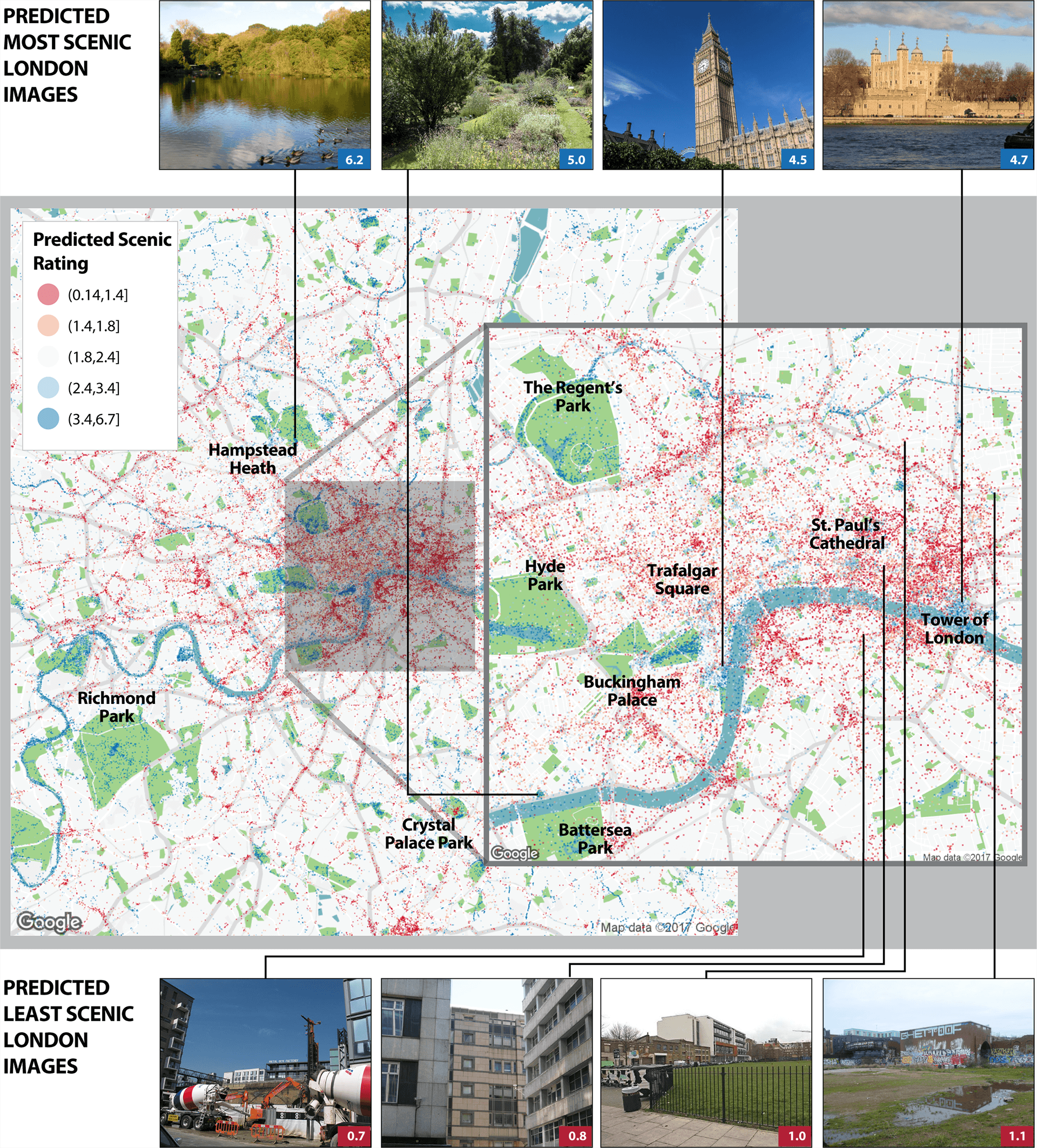Are neural networks the next marketing creatives?
Researchers at the UK’s University of Warwick have trained the system to recognize which urban or rural scenes are the most beautiful.
If you take comfort in knowing that we’re a long way away from the day when computer systems recognize a beautiful photo, you might want to sit down.
A team from the Warwick Business School at the University of Warwick in England have trained a neural network to recognize beautiful landscapes. Researcher Chanuki Seresinhe told me this is the first time for such an accomplishment, which formed the basis for their academic paper, published by The Royal Society Open Science.
This means that machine learning trained computer systems might — someday soon — help marketers and advertisers pick shots for ads, brochures or presentations. Already, IBM’s Watson has begun down that road, such as his recent job picking shots for a horror movie trailer.
The research team utilized a site called Scenic or Not, which asked 1.5 million visitors to rate about 200,000 landscape photos of UK scenes on a scale of 1 to 10, with 1 representing the ugly side and 10 the beautiful. The team then trained an MIT-based neural network with 80 percent of the photos that had been rated by at least three visitors, employing the average rating. Here’s a selection of most scenic and least scenic scenes selected by humans:
After the system “learned” what humans considered beautiful scenes, the researchers asked it to rate the remaining 20 percent of Scenic or Not’s photos, without letting the system know how the human visitors had rated them. Here are some of the most/least scenic scenes rated by the system that were from London:
The result was a 0.66 correlation with the average human rating, where a 1.0 correlation would have been the system picking the exact same 1-to-10 rating for each image. Seresinhe said this result indicated that the neural net got the idea.
The system was able to distinguish between urban and rural scenes, and found beautiful scenes in both kinds of locales, just as the human reviewers had. This meant, for instance, that scenes around parks like Hampstead Heath were rated highly by both humans and the neural net, as were scenes of Big Ben and the Tower of London.
Such an artificial intelligence based system could be very useful for marketers and advertisers. In choosing a beautiful photo for an ad campaign promoting travel to Ireland, for instance, such a computer assistant could pre-select images based on how beautiful they are.
Seresinhe noted that, in theory, this kind of trained neural net could similarly make qualitative judgments about any image characteristic that viewers can generally agree on, such as which ones are sexy, scary, sad or patriotic.
In anticipation of some future 4th of July, then, marketers may someday ask their digital assistants to find all imagery posted by their social influencers that is both sexy and patriotic, regardless of metatags or the surrounding text.
One expects that systems capable of understanding the agreed-upon beauty or emotion in a videoclip are not far behind.
Opinions expressed in this article are those of the guest author and not necessarily MarTech. Staff authors are listed here.
Related stories
New on MarTech


